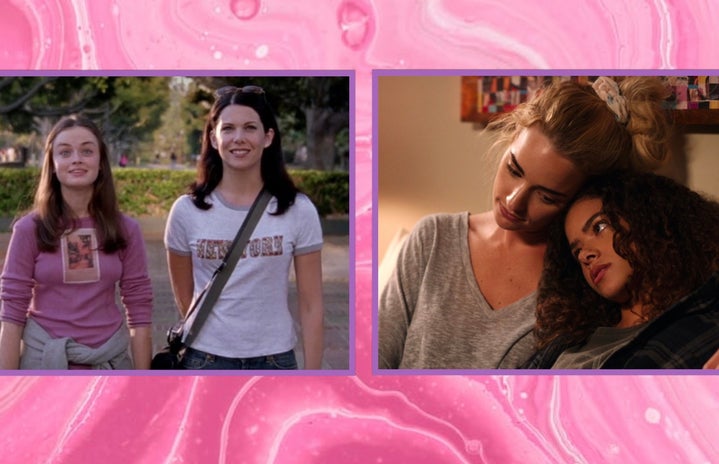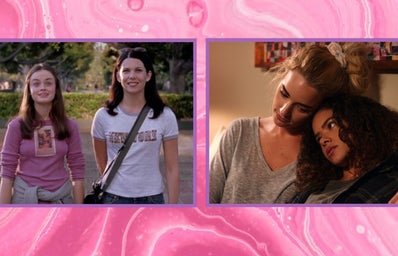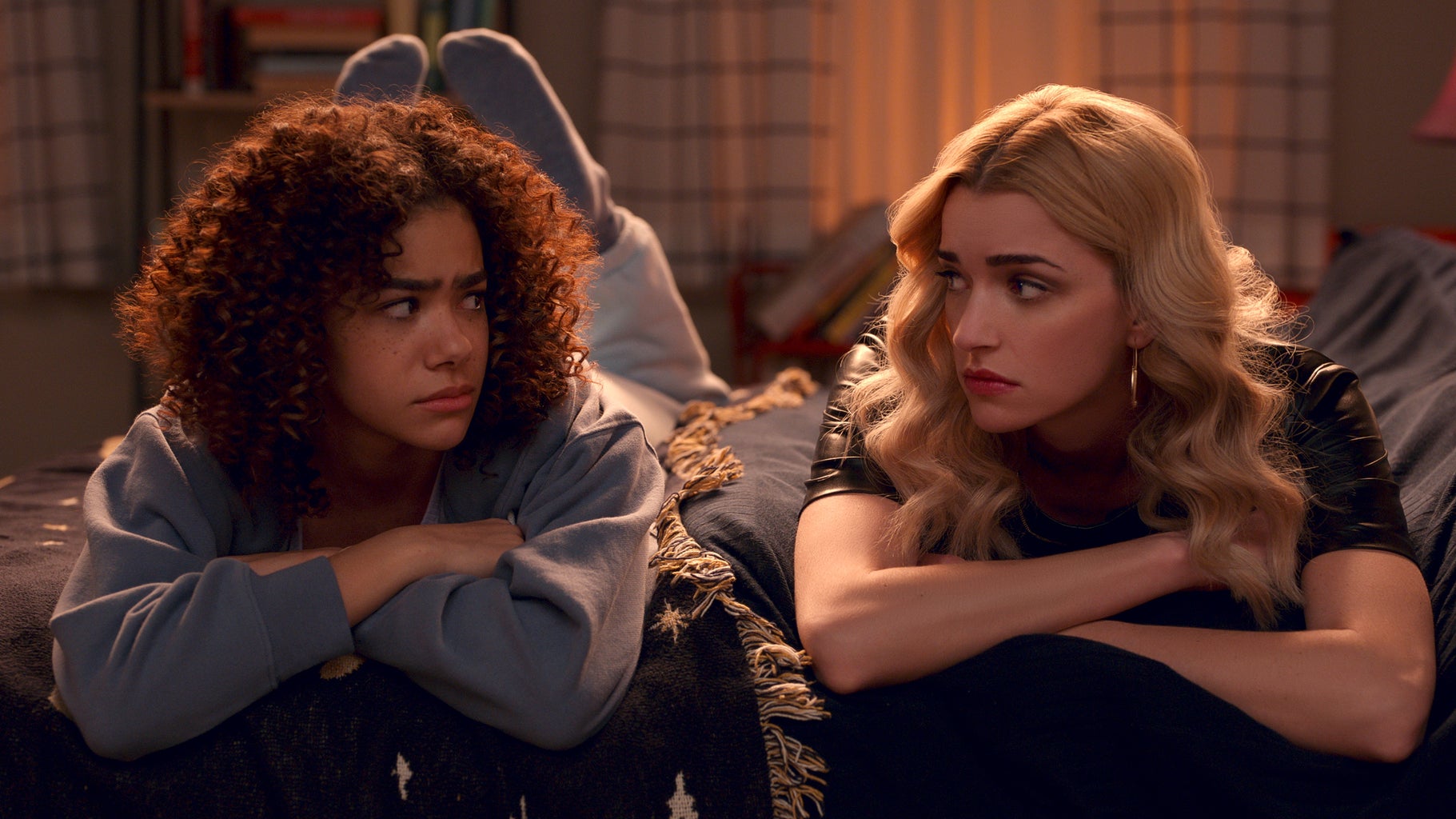It’s a chilly fall evening in 2001, and I just bought a terrible coffee at Luke’s Diner. Rory and Lorelai Gilmore are two seats away from me, eating burgers and talking at the speed of light. I draw a book out of my bag and slide it over to them with a whisper: “Generalized Anxiety Disorder.” They stare at the DSM-5 in mute disbelief. “Codependence. Family therapy.” They start shaking and crying.
Mental illness is a foreign concept to the quirky and lovable characters in Gilmore Girls. In Stars Hallow, Rory Gilmore’s panic attacks and academic tunnel-vision are lighthearted attributes of her perfectionism and a tub of ice cream is the foolproof answer to any negative emotion. Nobody expects Gilmore Girls to offer up a nuanced depiction of mental illness, but Netflix’s newest mother-daughter duo is picking up all the slack anyway.
Ginny & Georgia‘s second season premiered this month, differentiating itself from both Gilmore Girls and its own first season in its unflinching portrayal of mental illness. After its unserious first season (see: the infamous “Oppression Olympics” scene and Ginny’s dramatic salute meme), Ginny & Georgia has gained some serious self-awareness. It still tackles teen drama and love triangles (squares?) — and still has plenty of parallels to Gilmore Girls — but also serves some nuanced takes on mental health, domestic violence and racial injustice.
Georgia’s “cool mom” attitude evolves from a Gilmore Girls trope into a real lesson on healthy parenting strategies.
This season is so self-aware that it even calls out its own Gilmore Girls-esque mother-daughter duo. Like Lorelai Gilmore, Georgia Miller is a thirty-something single mother who considers her teen daughter to be her best friend. The two of them are witty and inseparable, and Ginny’s friends admire Georgia’s quirky parenting (see: Georgia smoking weed with Ginny’s boyfriend). But beauty and wit doesn’t make up for Georgia’s unpredictable and manipulative behavior, and in therapy, Ginny pieces together how their friendship blurs the boundaries of a healthy mother-daughter dynamic. In this new light, Georgia’s “cool mom” attitude evolves from a Gilmore Girls trope into a real lesson on healthy parenting strategies.
Perhaps the largest risk the second season takes is exploring Ginny’s self-harm. We first see Ginny using a lighter to burn her inner thigh in season 1, episode 2. For the rest of the season, her self-harm becomes an unimportant side plot to the main story of teen drama and romance. This changes in season 2, when Ginny admits to her father, Zion, that she burns herself. Zion privately arranges for her to see a therapist, where she learns coping mechanisms and discusses her triggers.
This display of healthy parental support is unique for teen TV. For all the neglectful and abusive parents in teen dramas like Euphoria, or downright traumatizing depictions of self harm in shows like Thirteen Reasons Why, there is not much positive representation for mental health treatment on TV. Zion’s response to Ginny represents a positive outcome from reaching out for help, which can encourage viewers to seek treatment.
Of course, not every parental response to a mental health crisis is as calm as Zion’s. Georgia represents the opposite end of the parenting spectrum: after reading Ginny’s private journal, Georgia spirals into anger at Zion and frenzied fear for Ginny. She confronts Ginny almost accusingly, demanding that she reveal her burns. Georgia is confrontational and overpowering in her mission to understand why her daughter might hurt herself, and her performance is so authentic and raw that it actually was the highlight of the season for me.
Georgia’s reaction hit home because she reminded me of my own mom. In the past, any discussion around mental illness would make my mom as combative and uncompromising as Georgia. Vulnerable admissions of mental distress quickly turned into arguments in which my mom defended herself against imagined accusations of her failure to provide safety and security to her children. Like many other Chinese Americans, my mom was burdened with a cultural stigma around mental illness that left her disbelieving and judgmental in the face of illness. Similarly, Georgia admits to her distrust in therapy by stating that “we don’t do this in the South.” By addressing how cultural upbringing and access to mental health care can impact our perceptions towards mental illness, Ginny & Georgia is taking a great step forward to help spread awareness of healthy ways to adjust and support family during a mental health crisis.
Ginny & Georgia still has some room to grow, especially in its representation of racial identity. But it has taken leaps forward in nuance and creativity since its first season, so I will be tuning in to whatever comes next.





